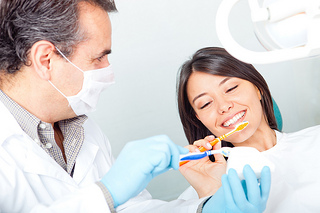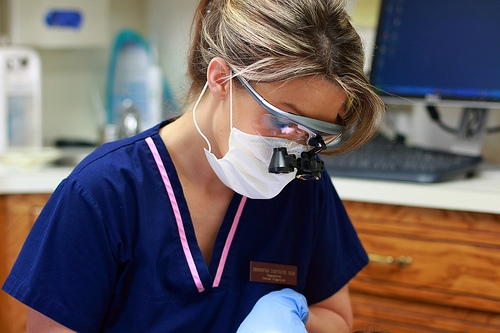How can parents help prevent tooth decay?
November 8th, 2023

Children are born with a set of primary teeth – 20 to be exact – that help them learn to chew and speak, and develop enough space in the jaw for the permanent teeth that will appear several years later. Kids are especially susceptible to decay, which can cause pain and tooth loss – a problem that could interfere with oral development. As a parent, it is important that you take proactive steps to keep your child’s teeth as healthy as possible.
Bottles and “Sippie Cups”
One of the biggest culprits of childhood tooth decay is poor diet. This begins as early as a few months old, when children are often allowed to go to bed with bottles and “sippie cups” of milk or juice. The sugars in these beverages – even natural sugars – can steadily decay the teeth.
Dr. Pohl and our staff suggest serving children milk and juice only at meal times, and limiting juice intake to just a few ounces per day. If your child becomes thirsty between meals or likes to go to bed with a bottle, serve water during these times.
Hygiene
As a parent, you can establish healthy dental habits long before your child’s first tooth erupts. Start by gently wiping your baby’s gums with a clean wash cloth during the first months of life. By age one, graduate to an appropriately sized toothbrush with fluoridated toothpaste, and brush at least twice a day.
Dental Visits
Dental visits should start young and continue on a regular basis throughout your child's life. Dr. Pohl and our staff recommend parents bring their children to Buttermilk Dentistry for the first time no later than the child’s first birthday. Initial visits concentrate on parental education, while later visits may include thorough cleanings and fluoride treatments as your child grows.
For more information about keeping your child’s teeth cavity-free, contact our Crescent Springs office to schedule a dental consultation and checkup.






 Website Powered by Sesame 24-7™
Website Powered by Sesame 24-7™